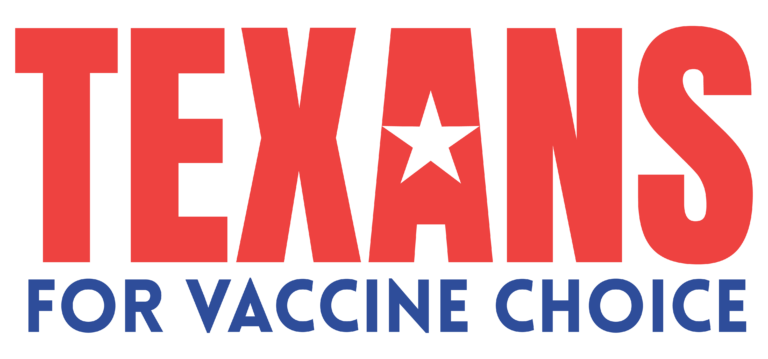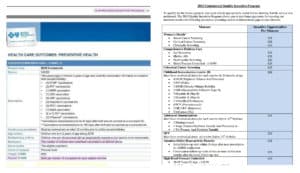When it comes to your family’s health choices — more specifically, choices affecting the health of your children — what factors do you consider when choosing one course of prevention or treatment over the other? I would imagine the majority of parents very carefully weigh the risks and benefits for the child, the impact a certain course of action or inaction would have on the child’s future, as well as the impact on the family unit as a whole, among various other things. The reasonings, decisions, and outcomes would be very different for each individual family.
One thing I can say with near certainty is that money, the cost of necessary treatments or interventions, would not be a hindrance for long if the best course of treatment happened to be the most expensive. Funds could be raised and payment plans put in place. Money would not stand between the child and their best interest in this scenario.
Now, let’s flip the script a bit and imagine a scenario where a total stranger to you and your child was tasked with making these very important decisions. What factors might someone who would never meet your child face to face take into account when making a decision affecting their health and well-being? They might weigh the risks and benefits, but perhaps in a much broader sense by considering not only the risks and benefits to the child, but maybe also to themselves and to society. Along with the future impact on your child, they may also consider the future impacts on themselves and the public. Add to this equation the fact that this stranger was set up to benefit financially by deciding on one course of action over all of the others. What if their career depended on one over the other? Their reputation? Their life’s work? Could this person be trusted to make a decision that was truly and honestly in the very best interest of YOUR child, YOUR family?
In these two scenarios, the options are the same, but the final decisions, motivations, and outcomes would likely be very different.
Unfortunately, there are a few legislators in Texas that are setting us up for that dreaded second scenario. The strangers with financial gains to be made and career advances to be had based on whether or not you and your child receive all of their vaccinations are making their move to remove you from the role of ultimate decision maker.
In a previous blog post, I brought attention to the fact that Representative Sarah Davis is well-funded by the pharmaceutical industry. In the most recently released campaign financial statement, 30% (over $32,000 of $106,013 total) of Representative Davis’ donations for the months of November and December were from organizations and individuals tied to the medical and pharmaceutical industries. There is no doubt that this massive bank roll is the motivation behind all of the vaccine-related bills coming out of Davis’ office (HB 97, HB 107, HB 120, and HB126). Likewise, Representative Donna Howard’s statement from the same time period shows that 24% (about $15,000 of $60,375) of her funding was from organizations and individuals in pharmaceutical and medical industries. Representative Howard has authored two immunization bills: HB 241 and HB 243. With one-third and one-fourth of Representatives Davis’ and Howard’s current funding coming from the pharmaceutical industry, it is easy to see where their enthusiasm for the push towards mandatory vaccination comes from.
What about these donors? Who are they and what are their motives? The following all make at least one appearance on each of the financial statements mentioned above:
- Global biopharmaceutical (read: vaccine) company Bristol Meyers Squibb
- vaccine manufacturers Pfizer, Eli Lily, and GlaxoSmithCline
- individual doctors (local and otherwise)
- a political action committee representing United Health Group
- the Texas Medical Association
- a political action committee representing hospitals (HOSPAC)
- Friends of Baylor Medical (more on this one later)
- and a company named Deloitte (more on this one later)
It’s pretty obvious why a biopharmaceutical company and vaccine manufacturers would want to invest in politicians willing to degrade the process of informed consent, complicate the vaccine exemption process, and advance the mandatory vaccine agenda — their bottom line depends on it. However, it may be less obvious to the casual observer exactly why insurance companies, hospitals, and individual doctors would feel compelled to fund this legislation. There is, of course, the obvious public health aspect. They believe that vaccines are in the best interest of public health. But could there be more to it?
An organization called The National Committee for Quality Assurance ranks insurance companies. High immunization rates among an insurance company’s providers will earn a higher quality rating for that insurance company. With that high quality rating, a company is eligible to receive federal funds. MONEY.
What about the individual private practice doctors donating to Representatives Davis and Howard? Well, in an effort to secure their higher ranking and federal funding, insurance companies provide financial incentives to providers in their network for having a certain percentage of fully vaccinated patients. For example, Blue Cross Blue Shield in Minnesota offers their providers a $400 bonus for each fully immunized two year old in their office that year. Fifty fully vaccinated two year olds will earn them a $20,000 bonus, 100 fully vaccinated two year olds will earn them a $40,000 bonus, etc.
Here’s the catch: in order to receive the bonus for any of these two year olds, at least 63% of ALL PATIENTS in that practice must be fully vaccinated, flu shot and all. Your child’s delayed schedule could cost your pediatrician their entire annual bonus (perhaps the reason so many patients following personalized immunization schedules are “fired” by their doctors).
Blue Cross Blue Shield offers their Tennessee providers a similar deal. This would certainly be enough motivation for private practice doctors to pressure legislators to move towards mandatory vaccination.
Lastly, I looked at hospitals. As with the other groups discussed here, there are numerous reasons why a hospital may want to reduce or eliminate personal vaccine choice, but I found one reason to be particularly interesting. A 2013 article in the Wall Street Journal reported on a new program that went into effect that year requiring hospitals to report staff flu vaccination rates to the CDC. Hospitals that do not report their rates would lose their Medicare and Medicaid reimbursements. According to the article, “The American Hospital Association estimates a hospital with 100 beds or more could forfeit $320,000 in payments.” Author of the article, Laura Landro, states, “It’s really a bottom line issue now.” Additionally, Medicare publishes the rates of each reporting hospital on its Hospital Compare website, presumably so consumers can choose the hospital with the highest employee vaccination rates. I’m sure these hospitals would love to see the end of employees’ religious exemptions affecting their bottom line.
Earlier, I mentioned Friends of Baylor Medical and Deloitte as being regular contributors to both Representatives Davis and Howard. These became especially significant to this topic when I began looking into the funding behind a local organization called The Immunization Partnership (TIP). They are very outspoken and involved politically with their stated goal of “eradicating vaccine preventable diseases in Texas.” In their biennial stakeholder reports, they repeatedly write of the necessity to eliminate “exemptions of convenience” (conscientious exemptions) and “non-medical” exemptions. Looking through TIP’s most recent donor list, I noticed that there, among the usual suspects of GSK, Merck, and Pfizer, was a company named Deloitte. Interestingly, a Deloitte employee is also on TIP’s board of directors. Deloitte is a UK based consulting firm. According to their website, “Deloitte helps our BioPharma clients to pursue growth opportunities and manage scientific, business, and regulatory challenges in an ever-changing marketplace.” “BioPharma” = vaccines, and “growth opportunities” = higher profits. They boast of representing 90% of the 15 largest pharmaceutical companies. I would say this blows that whole “vaccines aren’t profitable” argument right out of the water. Vaccine manufacturers have hired this global consulting firm that ensures they “pursue growth opportunities” and donate to organizations and politicians whose goals are to drastically increase (mandate) the demand for their product.
Paid-off politicians passing laws to mandate purchase of their product, suppliers in all levels of the chain financially subsidized by the government (in addition to their profits) for promoting their product, consumers punished socially and economically for not using their product, and NO LIABILITY for them anywhere along the line — pretty cushy deal for the vaccine manufacturers.
Friends of Baylor Medical is also a frequent top donor to both Representative Davis and Representative Howard. I would guess it to be no coincidence that Immunization Partnership board member Dr. Peter Hotez (whose wife Ann is among Representative Davis’ November/December donors) is the dean of the National School of Tropical Medicine at Baylor College of Medicine. He is also the president of the Sabine Vaccine Institute, an organization whose stated mission is “developing new vaccines (and) advocating for increased use of existing vaccines.” The Sabine Product Development Partnership (the “product” here being vaccines, of course) relocated to Houston in 2011. Their laboratories are located in Texas Children’s Hospital, which is coincidentally in Representative Davis’ district.
The Immunization Partnership laid out their goals regarding immunizations in Texas in their most recent stakeholder report. Notice how four out of six of their “key priorities” line up with Representative Davis’ and Representative Howard’s bills:
1. Combat misinformation regarding vaccines through improved education…. (HB 126 & HB 241)
2. Reduce the number of non-medical exemptions to school vaccine requirements. (again, HB 126 & HB 241)
3. Improve the efficiency of the Texas Immunization Registry, ImmTrac. (HB 243)
4. Identify and implement strategies to prevent HPV-related cancers. (HB 97 & HB 107)
Clearly, this is an issue that affects these organizations’ bottom lines and these individuals’ pocketbooks. According to the most recent documents publicly available, President and CEO of The Immunization Partnership, Anna Dragsbaek, earned over $170,000 in 2014. There is currently $95 MILLION in the state senate’s budget allotted to a program by the name of “Immunize Texas Children and Adults”.
This is obviously big business for a lot of people.
Our bottom line here at TFVC: YOU call the shots when it comes to your health and the health of your family. There is a price on the head of your medical freedom of choice. People with questionable motives are seeking to replace your best judgement with their money-motivated mandates. Will you let them?
Contact Representative Davis and Representative Howard and politely let them know that you value parental choice and informed consent!
Representative Sarah Davis: (512) 463-0389
Representative Donna Howard: (512) 463-0631



Thank you. I’ve talked to 26,000-30,000 people (at least 9,000) about flu shots and other shots. I’ve found 10 people whose relatives or friends died after taking the flu shot, 8 that got GBS, two dozen that went to the hospital, and 80% of the thousands are adament in not getting another shot because they repeatedly got sick. These were adults and many were health care workers. Government tries to find where people are vulnerable: their kids can’t go to school, you can’t see your grandchildren, you’ll get fired from your job, you can’t take your new born baby home because you would be endangering her but you got sick as a dog for two weeks and breastfeed or hug, you can’t graduate from high school in two weeks because you haven’t taken the shot, you can’t be a midwife, you can’t volunteer, tetanus is contagious, herd immunity is important, booster shots don’t mean the first shots failed, etc.
Thank you for this information. I had heard that politicians, doctors and hospitals etc get paid big money but good to read the real facts. Sad because so many people just don’t want to hear it or believe it as they think these doctors care about them and their children and don’t ask questions or research, heard mentality. Just hard to believe people would do this for money. The love of money so evil.
My thanks to Texans for Vaccine Choice in publishing this information. After researching chemistry in non-vaccine-related goods, and several sincere articles by parents with vaccine-autism children injuries, I can obviously see that there is at least the irrefutable claim that vaccines contain poisonous chemicals which are being downplayed by the pharmaceutical industries. You cannot be a big company to deny the obvious. But you can if you have all the influence and can stifle all the doubt. Which is what the industry has, and which is why this scandal has gone on for so long.
I remember reading the Founding Fathers of America and understood that they had this same problem when framing the government: how much authority should be given to the authoritative branches of government? Does the Constitutional Rights protect men ENOUGH from the leaders of men? Are there loopholes that will be exploited that we can protect against?
And the answer does not matter too much now, for men have twisted the law ENOUGH that you have lost your right to be informed on how long or how much we live … but soon, they can twist the law to reflect how you are TO live.
May God help us against such tyrants! May God forgive those who are ignorantly supporting them!
The beginning name of the website seems rather suspicious, but I will not judge its medium, but its sources, which are correct and logically supportive of what I have learned of vaccines (which constitutes a bit of a website-sprawl in of itself). Vaccines are counter-intuitive to what humans are supposed to be. And it should be obvious, but to people who find profit, this can affect their ideas on the matter.
Thanks for bringing this to my attention. It has yet to be “confirmed” by me (should another person ask me about this), but it coincides with what I have found, and also, it is honest in what it asks, and equally poignant about who is responsible. We hate to blame our own government for messes in our country, but sometimes we learn to forgive it, because when men err, they also learn. And to err is human, but to forgive is divine.
May we all stop the inconsistencies pervading our society, and make our country a better place! God bless you for sharing the truth, however hard it may be!
I have been wanting to understand how insurance companies profit from the sale of vaccines so I was glad to find this article. I got confused as I read it, though, because you wrote, “High immunization rates among an insurance company’s providers will earn a higher quality rating.” Finally, I realized that you meant “high vaccination rates”. Immunization comes from getting a childhood disease. “Immunization rates” must be the term that the pharmaceutical web uses. But I don’t think we should use it when referring to vaccinations. It’s not an appropriate use of the word.
Thank you for getting the truth out. I live in NYC and what is happening in my State is horrible. I live in Riverdale NY where Jeffrey Dinowitz recently gave “ the finger” to the parents of vaccine injured children. In NY they are trying to get rid of religious exemptions. This is very scary.
I am the mother of a beautiful 14 year old son that has been severely injured by the MMR. My son was born healthy and happy. I have many videos of my son talking, singing, reading, and playing. After his MMR at around 20 months old my son lost over 150 words, the ability to feed himself and so much joy. After his shot he cried, could no longer sleep, developed Complex Partial seizures that generalize and lost all of his language.
What has happened to my son, and my family is beyond devastating! What is also devastating is that this happened to him and there are still people that will say it never happened. My heart goes out to all the families that have experienced similar reactions.
I want to thank all those that continue to fight and help get the truth out about what is happening our children today in the name of money. Good luck to those of you in Texas fighting for what is right!!
Insurance companies get rebates from pharmaceutical companies when their drugs are prescribed. Like for example a statin drug for high cholesterol. I believe it is the same for vaccines but I don’t see that anywhere. They don’t exactly want to broadcast that. So for an insurance company to pay a doctor huge bonuses for fully vaccinating a certain number of patients, the money must be coming directly from the drug companies thru rebates. Does anyone have that spelled out a little more clearly?